4 Best Materials That Pool Deck Contractors Recommend
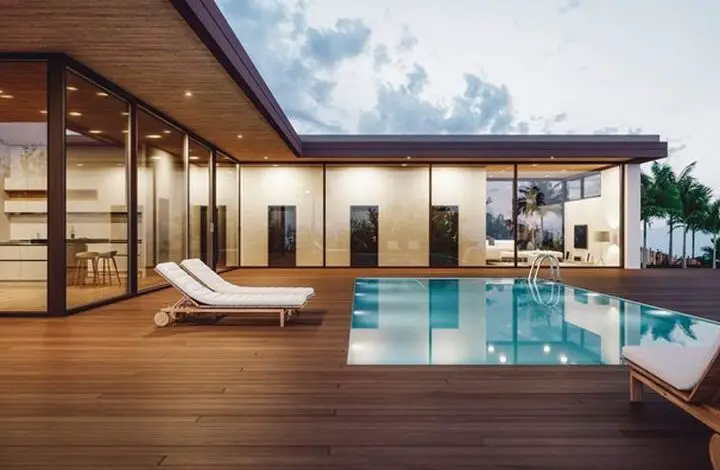
When you think of making your pool deck, you must keep in mind that you need to decide on the material Choosing materials for the deck around your in-ground pool requires careful thought. Pool decks have different performance requirements than regular patios. When you know about the decks, deciding how you want your pool deck to be looked at will become easy. In addition to being attractive, they must be easy on bare feet (read heat reflective, non-slippery, even-surfaced, and resistant to chemicals, mold, and mildew).
One of the most important is ensuring that the deck is water-resistant and non-slippery. This is very crucial for you, and this is the reason it is important for you to choose the right material. While the type of material you choose will be determined by several factors, such as cost, durability, and maintenance, the good news is that there are many to choose from.
Some Of The Best Materials That Pool Deck Contractors Recommend:
Let’s check out some of the best materials that pool deck contractors recommend because they are usually used and also ensure you maintain the look and still have a non-slip and chemical-resistant deck. Further, we will discuss the materials in detail so you can decide on the most suitable material for your pool deck.
Decorative Concrete:
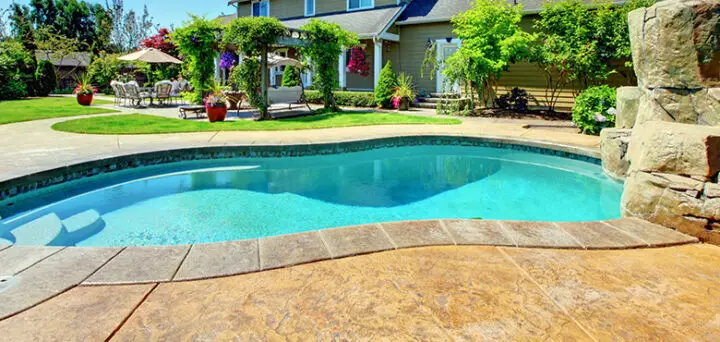
Stamped concrete is the best material to use when constructing pool decks that mimic natural slate, flagstone, or brick. Professionals highly use them, and they also recommend them because of the aesthetics and properties that ensure that you have an amazing pool deck. Stamped concrete imitates natural stone in appearance when tinted with stains or dry-shake color hardeners, but it is simpler to install and maintain. Additionally, exposed aggregate, broom finishes, and borde are just a few additional aesthetic surface treatments that can be complemented with stamped concrete.
If you consider going for stamped concrete, you must research first. Its adaptability is what makes it appealing. It has high adaptability, and also it is conserved to be very versatile and easy to install. It allows you to play with the designs and have the pool deck you were always thinking of getting.
Concrete can easily be stained, stenciled, or stamped to simulate stone, brick, or other finishes, in addition to the more conventional plain poured concrete decks. Concrete gives the liberty to use it anyway and design the whole thing according to the individual’s choice. You can change it according to your needs and aesthetics; they can be stenciled. For homeowners looking for a straightforward, minimalist, and reasonably priced pool deck, the poured version, as seen in this image, is the ideal choice.
Wood
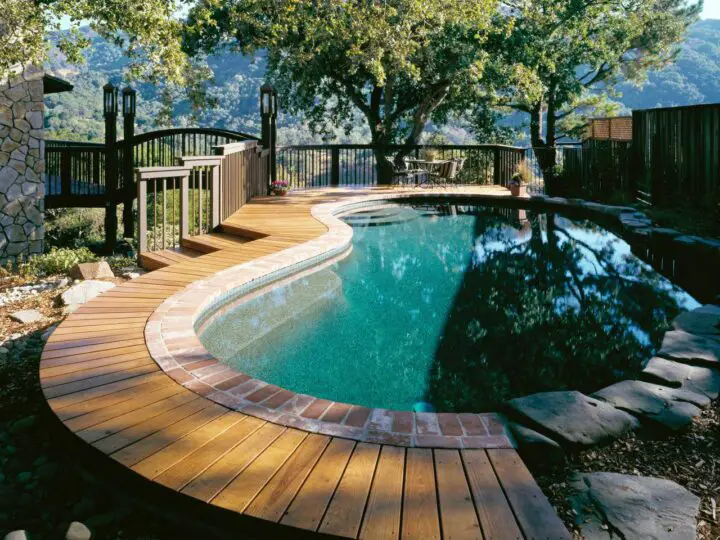
Depending on your budget, there are many different types of natural wood, including Brazilian ipe, cedar, and pine. You can find many types of wood, but it is not mandatory that all the types of wood would be suitable for you. Also, in certain countries, there are certain woods that are easily available, so you can search them out and get the wood for your pool deck accordingly. For instance, Teak has a built-in resistance to insects, mold, and mildew. Anywhere they are, wooden decks need periodic upkeep, including cleaning, sanding, and sealing.
Because it doesn’t hold up well to corrosive pool chemicals and moisture, wood decking is typically not a viable option for in-ground pools. Although they can be employed, tropical hardwoods like ipe or composite goods are sometimes pricey. If you prefer the appearance of wood, concrete can be colored and stamped to resemble wood planking. It will be more durable, simpler to maintain, and resistant to UV radiation, chemicals, and water damage.
Tile
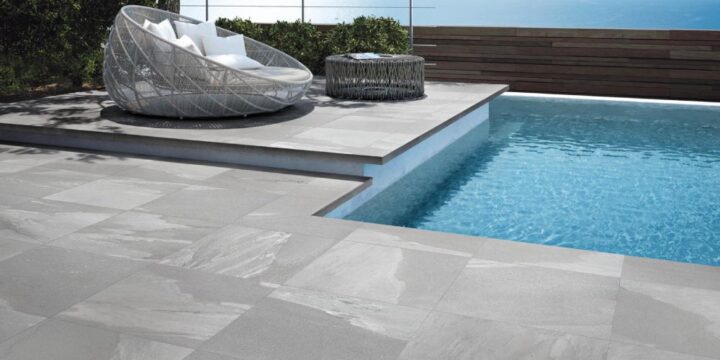
Tile is another popular option for pool decks. They are certainly the standard type of material used by people for pool decks. Tile is available in a wide range of colors, shapes, and finishes. They come in different varieties and are highly appropriate for pool decks because of their non-slip texture and elevated appearance. Because of its durability and finished appearance, tile is popular for use along pool copings. Brick is also an attractive and long-lasting material for pool borders and decks. They are not widely used, but you can also consider them one of the best materials. Brick can be a little slippery, and it might also make it too cold in the freezing winters, making it not the ideal pool deck material.
Tiles can be laid in any pattern or design that you desire. You have to find the sources that can help you out-installed the deck according t your design and aesthetics so that you can get the expected results. Although the grout may need to be redone every few years, maintenance is minimal. The main disadvantage of tile is the initial installation cost, but tile is the best option for those looking for a detailed, high-end look for their pool deck.
Pavers
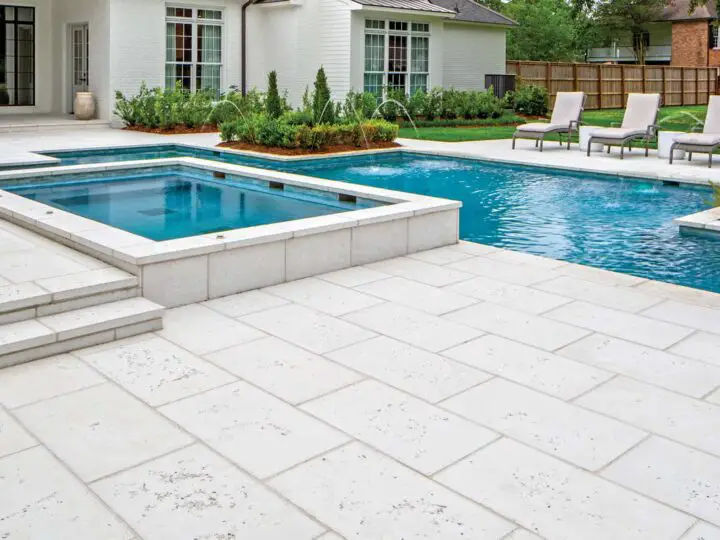
Pavers are a common hardscape material for paths, patios, and pool decks. They are typically made of concrete, stone, or brick, with the first two being more durable. They come in the category of being highly durable and ensuring that you don’t have to spend long in the coming years to maintain your pool deck.
They are highly durable, and if you are looking for one source that can provide you with good quality and durable porcelain pavers, you can find here more information . Pavers require little maintenance and are simple to replace if a unit is damaged. Texturing them creates a non-slip surface. They do not crack or accumulate water. This is the reason you must buy the stone or material from
Conclusion
This article will work for you as a guide and help you ensure that you are buying the most suitable material for your pool. Always do good research and buy the material from the finest providers so that you don’t have to spend a lot on maintenance costs. All these materials are the ones that deck contractors highly recommend.

